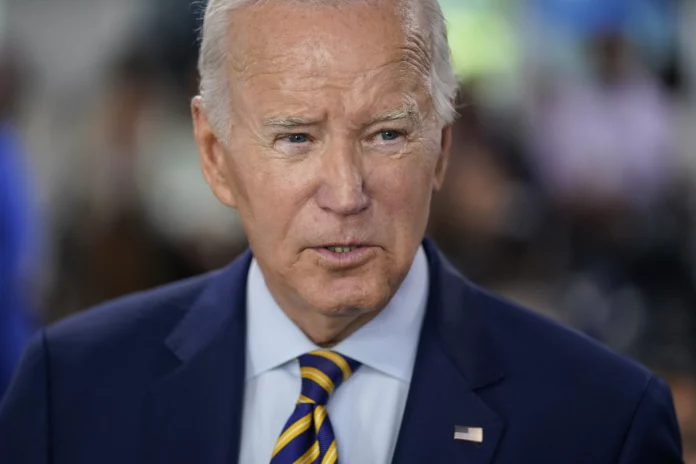President Joe Biden made a historic announcement on Monday, stating that he will be commuting the sentences of 37 out of the 40 people on federal death row. This includes two individuals from Illinois. This move comes just weeks before President-elect Donald Trump, who has been a vocal supporter of expanding capital punishment, takes office.
But what exactly does it mean to commute a death sentence? Commuting a death sentence means that the punishment is converted to life imprisonment. According to the U.S. Department of Justice, the President has the power to commute a sentence imposed by a federal court or the District of Columbia Superior Court. This decision reduces the sentence being served, but does not erase the conviction or imply innocence.
Out of the 37 individuals whose sentences have been commuted, two have ties to Illinois. One of them is Jorge Avila-Torrez, a former Marine from Zion, Illinois, who was sentenced to death for the 2009 murder of 20-year-old Navy sailor Amanda Snell. DNA evidence also linked him to the 2005 killings of 8-year-old Laura Hobbs and 9-year-old Krystal Tobias in Zion. The other individual is Ronald Mikos, a foot doctor who was facing allegations of Medicare fraud and was sentenced to death in 2005 for the murder of a disabled nurse.
The full list of individuals whose sentences have been commuted includes names like Shannon Wayne Agofsky, Billie Jerome Allen, Aquilia Marcivicci Barnette, Brandon Leon Basham, Anthony George Battle, Meier Jason Brown, Carlos David Caro, Wesley Paul Coonce Jr., Brandon Michael Council, Christopher Emory Cramer, Len Davis, Joseph Ebron, Ricky Allen Fackrell, Edward Leon Fields Jr., Chadrick Evan Fulks, Marvin Charles Gabrion II, Edgar Baltazar Garcia, Thomas Morocco Hager, Charles Michael Hall, Norris G. Holder, Richard Allen Jackson, Jurijus Kadamovas, Daryl Lawrence, Iourij Mikhel, Ronald Mikos, James H. Roane Jr., Julius Omar Robinson, David Anthony Runyon, Ricardo Sanchez Jr., Thomas Steven Sanders, Kaboni Savage, Mark Isaac Snarr, Rejon Taylor, Richard Tipton, Jorge Avila Torrez, Daniel Troya, and Alejandro Enrique Ramirez Umana.
However, this decision means that only three federal inmates are still facing execution. They are Dylann Roof, who carried out the 2015 racist slayings of nine Black members of Mother Emanuel AME Church in Charleston, South Carolina; 2013 Boston Marathon bomber Dzhokhar Tsarnaev; and Robert Bowers, who fatally shot 11 congregants at Pittsburgh’s Tree of Life Synagogue in 2018, the deadliest anti-Semitic attack in U.S history.
It is worth noting that no inmates are currently on death row in Illinois. Former Illinois Gov. George Ryan had commuted the death sentences of all inmates before he left office in 2003. Later, former Gov. Pat Quinn signed legislation abolishing the death penalty in the state in 2011.
So, why did President Biden make this decision? The Biden administration had announced a moratorium on federal capital punishment in 2021 to study the protocols used, which suspended executions during his term. However, Biden had promised to go further on the issue in the past, pledging to end federal executions without any exceptions for terrorism and hate-motivated, mass killings.
In a statement, President Biden said, “I’ve dedicated my career to reducing violent crime and ensuring a fair and effective justice system. Today, I am commuting the sentences of 37 of the 40 individuals on federal death row to life sentences without the possibility of parole. These commutations are consistent with the moratorium my administration has imposed on federal executions, in cases other than terrorism and hate-motivated mass murder.”
During his presidential campaign in 2020, Biden’s website stated that he would work to pass legislation to eliminate the death penalty at the federal level and incentivize states to follow suit. However, this language did not appear on his reelection website before he left the race in July.
President Biden also took a political jab at Trump, saying, “In good conscience, I cannot stand back and let a new administration resume executions that I halted.” Trump, who takes office on January 20, has frequently spoken about expanding executions. He has even advocated for the

